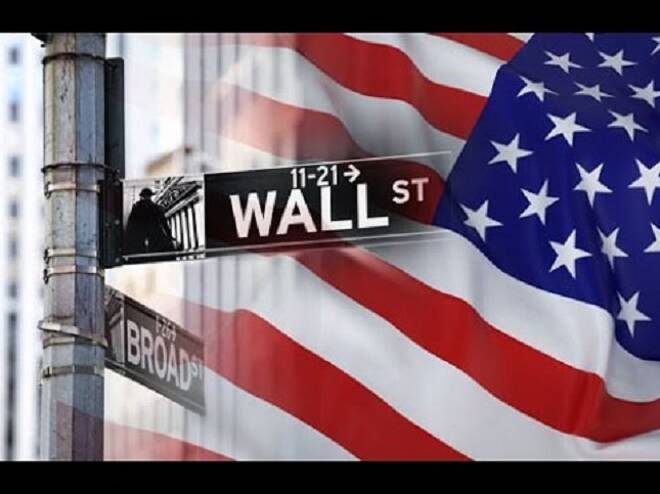Advertisement
Advertisement
What Volatility? – Wait’ll You See What Happens if Democrats Win the Mid-Terms
By:
In my opinion, the timing for the stock market sell-off suggests investors hedging their bets ahead of the November mid-term elections. Voters go to the polls on November 6 and the last analysis shows the Democrats leading over the Republicans. And this is a problem for investors.
U.S. equity markets are down again on Wednesday with the Dow erasing earlier gains. Shares of Boeing tried to carry the Dow higher on the opening, but buyers caved to pressure from a drop in technology shares led by declines in Facebook, Amazon, Netflix and Google-parent Alphabet.
Boeing was up on better-than-forecast profit and revenue. It also raised its full-year guidance on earnings and sales. However, this news could not overcome the sell-off in the overvalued tech sector.
Is it really any surprise that technology is leading the markets lower this month? As on today’s opening, the S&P 500 technology sector was down more than 7 percent in October. It was made clear to investors as recently as August that the FANG stocks – Facebook, Amazon, Netflix and Google – represented as much as 50% of the stock market’s gains this year.
So it makes sense that if they weaken, their losses will be a drag on all of the major indexes. It’s just another case of “Live by the Sword, Die by the Sword” for some investors.
Factors Driving the Price Action – Don’t Forget the Mid-Term Elections
The list of possible factors driving this month’s stock market volatility just keeps growing and growing. At the start of the volatility, investors blamed rapidly rising interest rates fueled by Fed policy. Then investors blamed Saudi Arabia and its escalating conflict with the West over the killing of a dissident journalist. This week, a simmering conflict between Italy and the European Union over budget spending seems to be the reason for the market’s two-sided swings.
Don’t forget the tariffs and the on-going trade dispute between the United States and China, and the Brexit impasse (wasn’t Brexit expected to cause worldwide turmoil over two years ago?)
In my opinion, the timing for the stock market sell-off suggests investors hedging their bets ahead of the November mid-term elections. Voters go to the polls on November 6 and the last analysis shows the Democrats leading over the Republicans. And this is a problem for investors.
A shift in power in Washington will put President Trump’s plan to “Make America Great Again” in jeopardy. Certainly, his plans could start to derail in January when the electees take office. But investors aren’t going to wait until then to make their move.
Back in July, a White House economic advisor said “The main thing that could derail markets and the economy would be a Democrat takeover of Congress.” He went on to say politics are the main threat to the current economic momentum.
“I could think of a lot of bad things that could hurt markets,” White House economic advisor Kevin Hassett told CNBC’s Joe Kernan in a “Squawk Box” interview. “I would say the biggest bad things I could think about is we’ve made so much progress passing all these policies like tax reform and deregulation that have led to a surge in sentiment and a surge in economic growth.”
“If politics were to change in the U.S. so that Democrats would come in and pass big tax hikes and re-regulate, that would be terrible and markets would be terrified of that,” he added.
I tend to agree with Hassett’s assessment. You think the last two weeks have been volatile, “You ain’t seen nothing yet”. Just wait until Tuesday, November 6. If the Republicans lose, get ready to sell with both hands.
About the Author
James Hyerczykauthor
James Hyerczyk is a U.S. based seasoned technical analyst and educator with over 40 years of experience in market analysis and trading, specializing in chart patterns and price movement. He is the author of two books on technical analysis and has a background in both futures and stock markets.
Advertisement
